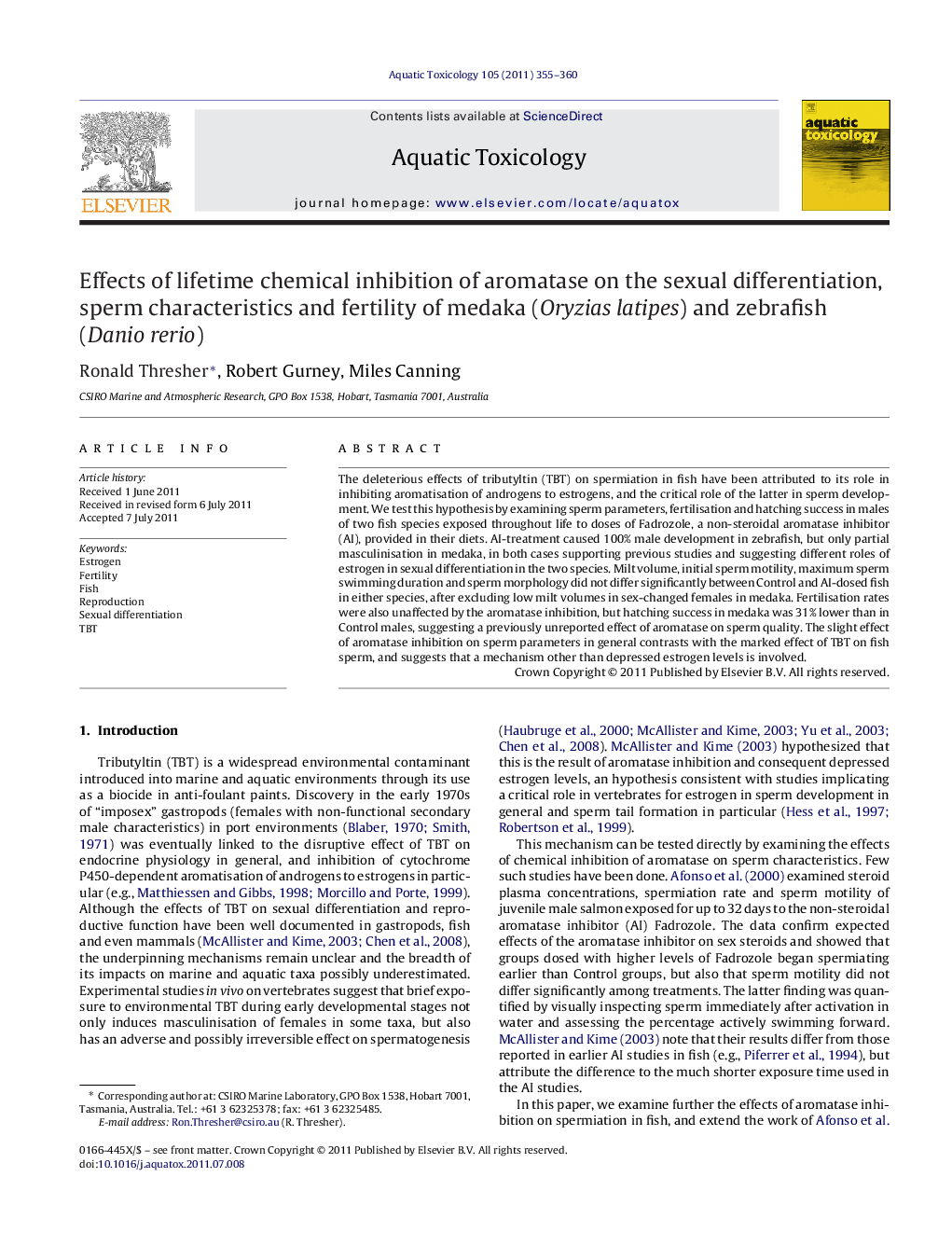| Article ID | Journal | Published Year | Pages | File Type |
|---|---|---|---|---|
| 4529820 | Aquatic Toxicology | 2011 | 6 Pages |
The deleterious effects of tributyltin (TBT) on spermiation in fish have been attributed to its role in inhibiting aromatisation of androgens to estrogens, and the critical role of the latter in sperm development. We test this hypothesis by examining sperm parameters, fertilisation and hatching success in males of two fish species exposed throughout life to doses of Fadrozole, a non-steroidal aromatase inhibitor (AI), provided in their diets. AI-treatment caused 100% male development in zebrafish, but only partial masculinisation in medaka, in both cases supporting previous studies and suggesting different roles of estrogen in sexual differentiation in the two species. Milt volume, initial sperm motility, maximum sperm swimming duration and sperm morphology did not differ significantly between Control and AI-dosed fish in either species, after excluding low milt volumes in sex-changed females in medaka. Fertilisation rates were also unaffected by the aromatase inhibition, but hatching success in medaka was 31% lower than in Control males, suggesting a previously unreported effect of aromatase on sperm quality. The slight effect of aromatase inhibition on sperm parameters in general contrasts with the marked effect of TBT on fish sperm, and suggests that a mechanism other than depressed estrogen levels is involved.
► TBT has been suggested to affect sperm parameters by disrupting aromatisation. ► We compare lifetime chemical inhibition of aromatase (AI) in two fish species. ► AI effects on sperm are slight in both species, differing from reports for TBT. ► This implies effects of TBT on sperm do not result from depressed estrogen levels. ► AI can affect sperm quality, but the mechanism involved is not clear.
